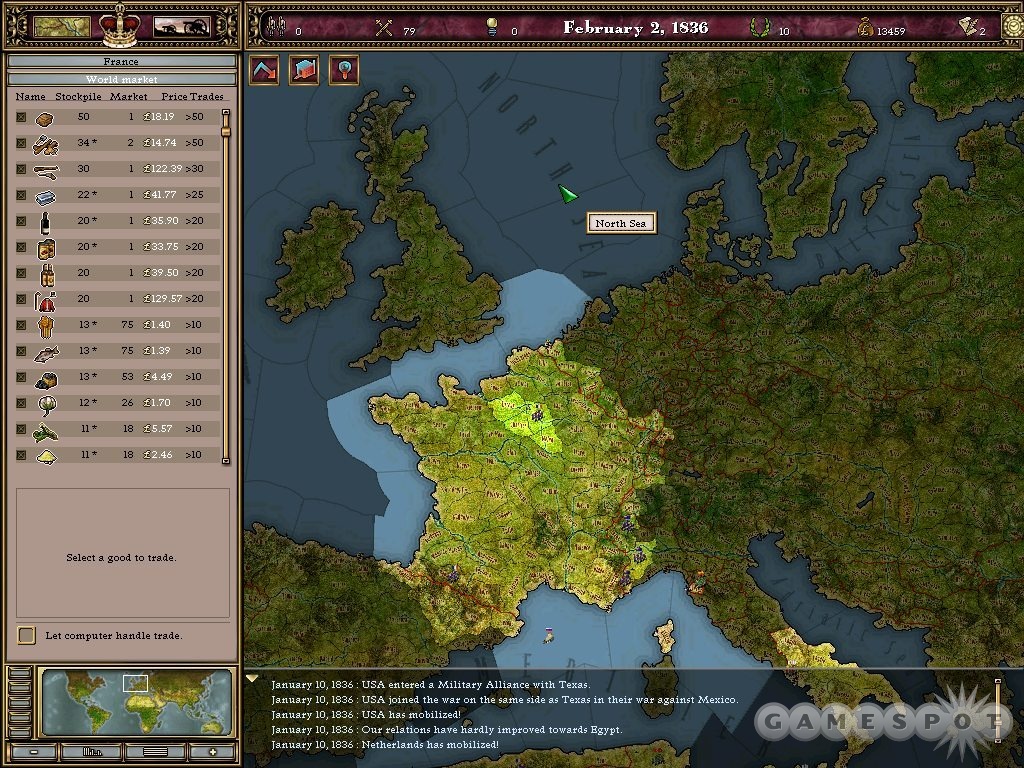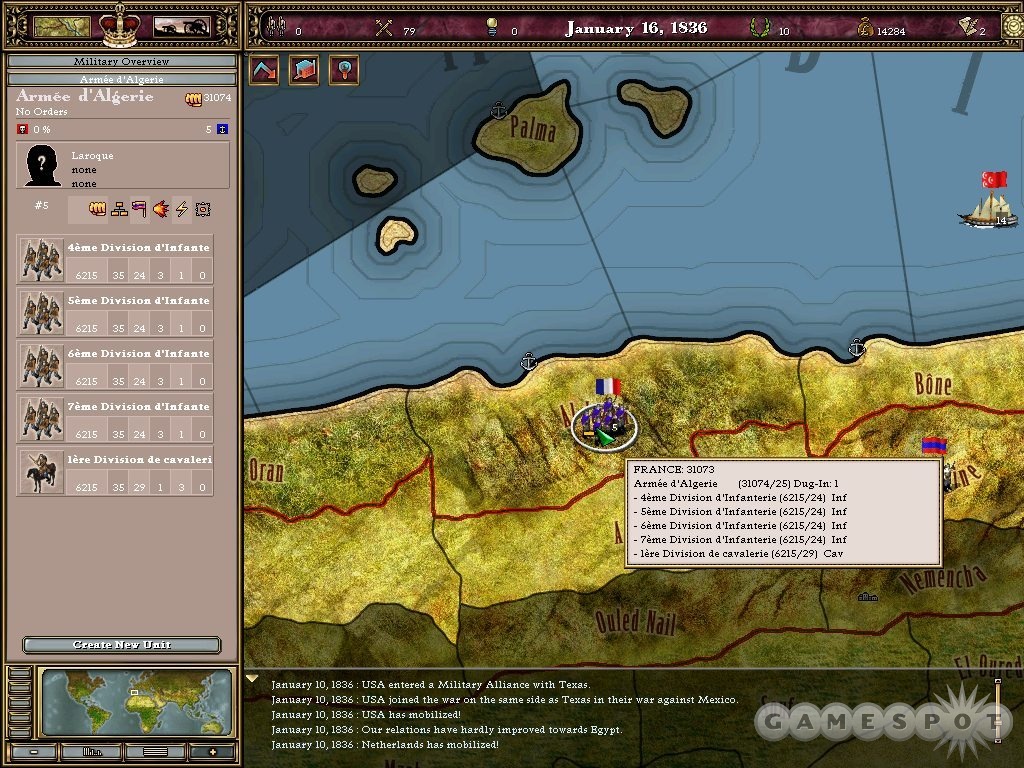As a cheap online-purchase-only expansion to 2003's Victoria: An Empire Under the Sun, Revolutions does its job reasonably well. While it doesn't change or enhance enough of the core game to attract players turned off by the original's extreme attention to detail, convoluted interface, and design flaws, it contains so many subtle tweaks and improvements that it is a must-buy for fans. The only drawback is that this $10 expansion probably should have been offered as a free patch.

The massive scope seen in Victoria remains the same, of course. As usual with developer Paradox Interactive, this is a game of grand strategy, where you take over pretty much any nation and try to guide it to prosperity or flat-out world domination. Game mechanics address virtually all of the social and political turmoil that took place during the 19th century, including liberalism and industrialization, as well as the rise of democracy and the establishment of the first truly globe-spanning empires. The big change to the focus of the game involves stretching the open-ended grand campaign from the original terminus of 1920 to the end of 1935 (a move that comes complete with new units, historical events, and inventions). You'll also now be able to port your Revolutions saves into the game's WWII-era big brother, Hearts of Iron II: Doomsday, where you can continue the struggle for world dominance all the way into the Cold War. So if you own both games, you can now play geopolitical guru for more than a century and span virtually the entire modern age.
Gameplay has been both enhanced and extended. A lot of the exploits from the original Victoria have been tightened up or eliminated. A mostly new economic system means that you can no longer take advantage of economic issues that could see middling states like Poland and Spain accumulate massive sums of cash and become globe-bestriding behemoths. Money is now a more big-picture resource. Instead of controlling every dime in every province, you now take a hands-off approach and embrace a free market. This greatly eases the crushing levels of micromanagement in the original game and sets up more realistic economics where capitalists take charge of developments and build the factories that they want, when they want. At the same time, however, less control really means less control. Free markets mean that you lose input when it comes to ordering up buildings, which can be a real issue at times, particularly if you want to go to war while the money-men are focusing solely on luxury items and infrastructure like railroads.
Elections have been altered, too. In the original game, elections came and went without having much of an impact on how you were playing. In Revolutions, elected governments place certain restrictions on your conduct. If the electorate votes for a pacifist party, you can't just ignore their will and go nuts on a military buildup, as your spending will be capped. However, if they go the other way and select war-mongering jingoists, you won't be able to cut back all that much on military spending. The trick now is to make sure that your people stay somewhere in the middle and give you room to move, which you can attempt by banning the more extreme parties that you don't want to see in power. Of course, too much repression and populaces can revolt and force the change that they want, and this has a habit of happening at the most inopportune times, like right after declarations of war.
All in all, both the economic and political restrictions are good changes. While hemming the player in is usually seen as a negative development, the original Victoria left things so wide open that it was very tough to figure out what you were supposed to be doing. Some of the limitations set in place in Revolutions can be frustrating at times, but they're a lot less frustrating than not being able to figure out many aspects of the game at all. Also, these changes do a great job of immersing you in the game as an actual head of state who has to take the people into consideration, and not as an omnipotent figure lording over a computer game. The overall feel is a lot more natural, which makes the game more playable.
But Revolutions still doesn't get the job done in a number of areas. Even though the developers at Paradox likely rewrote a fair bit of the game code, they still didn't bother to include an in-game tutorial, which is an absolute must for a game of this complexity. So you still aren't given enough of a leg up when it comes to learning the game, or even when it comes to managing the blizzard of pop-ups that the interface hurls at you. Many of the historical choices you'll make during the campaign are presented with little or no background, so you don't really know what you're choosing when you click on yea or nay. This is a real annoyance, as many of these options have huge effects on how you build your economy and wage war. And Paradox still hasn't addressed a few technical issues. The game has a tendency to blink on a regular basis, and it chugs mightily when scrolling the map. This just isn't acceptable, especially considering that the engine is now well over three years old.
Yet even with the steep learning curve and cumbersome interface firmly in place, Revolutions fixes Victoria up to a playable state that seems to get a lot closer to what the developers originally had in mind. However, it's grating that you're being forced to pay for what really should have been in the box three years ago, and it's further bothersome that Paradox still hasn't added a proper in-game tutorial.




